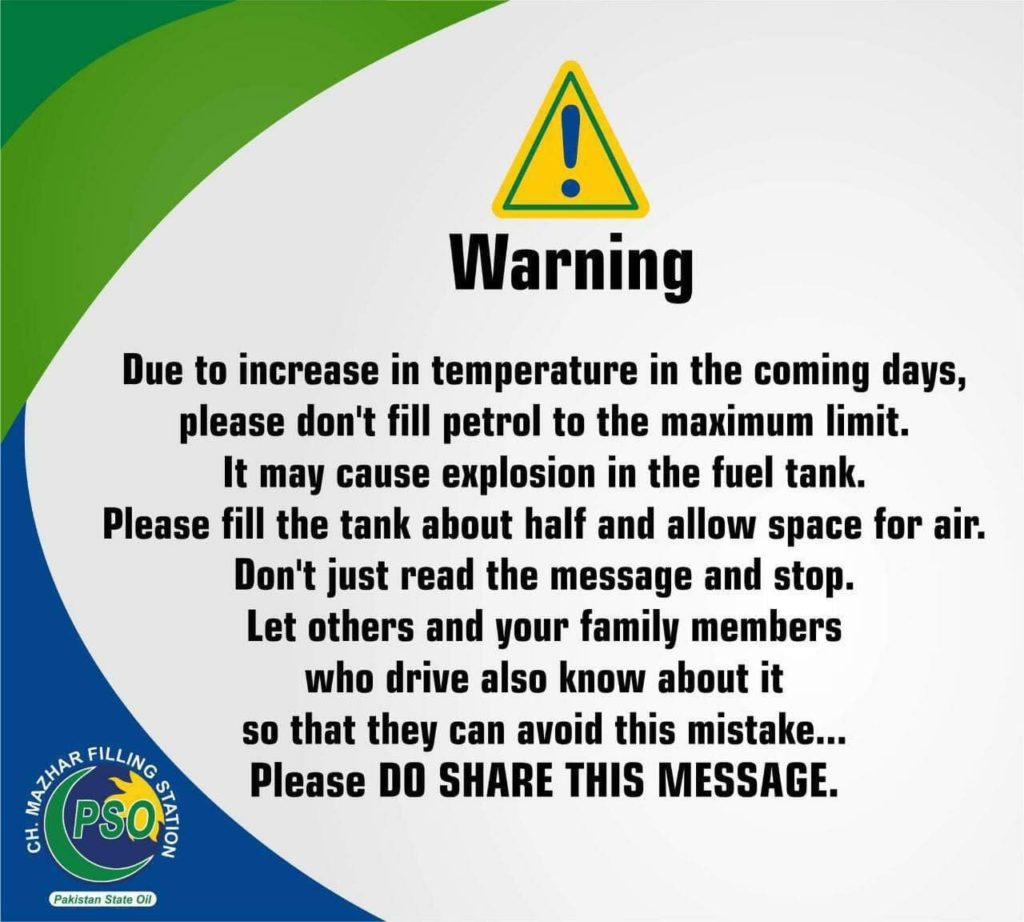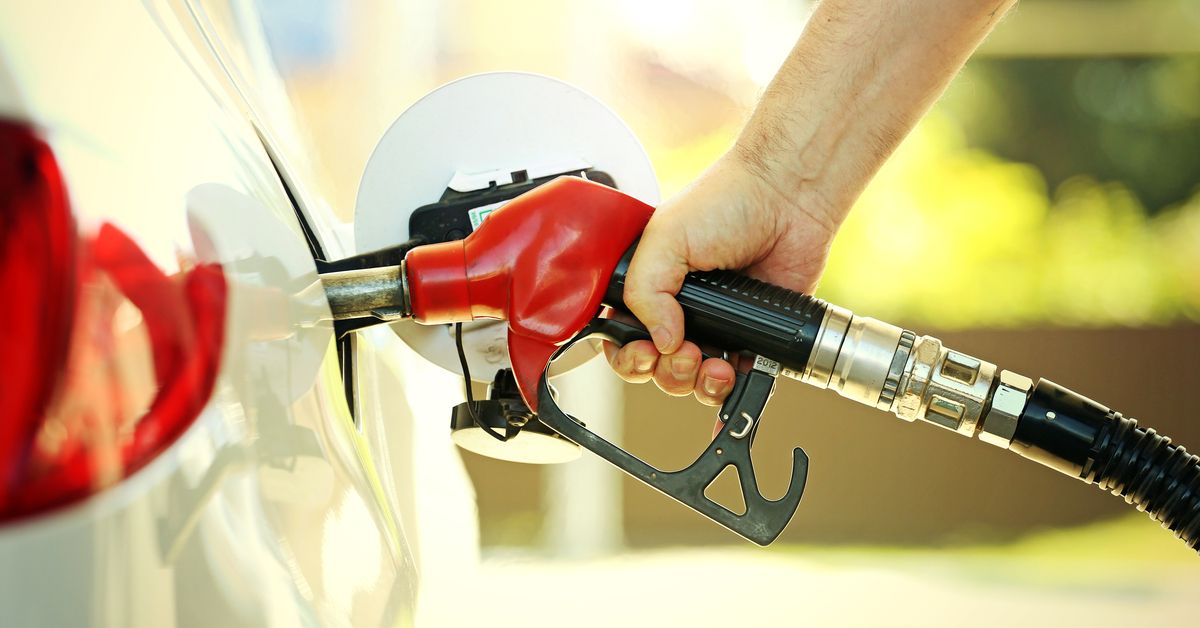Origin
Since at least as far back as 2011, the Internet has been plagued by a viral warning about a danger to car owners, who supposedly create a significant risk of explosion by filling their vehicles' gas tanks to capacity during hot weather:

This premise sounds terrifying, but thankfully it makes zero scientific sense.
This claim is complete hogwash for two clear and incontrovertible reasons. The first is that the temperature at which fuel auto-ignites (i.e. the temperature at which fuel will combust without a trigger or spark) is around 495ºF. This level is far higher than any temperature a covered, insulated tank could possibly achieve simply by being driven or parked on planet Earth.
The second reason concerns the implication that pressure will dangerously build up in car's gas tank during hot weather, leading to higher temperatures within the tank and, somehow, an eventual spontaneous explosion. However, modern fuel tanks must have the ability to vent pressure.
Since 1971, the U.S. Environmental Protection Agency (EPA) has required that all internal combustion engine cars include evaporative emission control (or EVAP) systems. This mechanism collects excess fuel vented from a tank (to maintain even pressure) and, when conditions are correct, returns it to the tank.
Prior to the adoption of these regulations, many gas tanks simply relied upon vented gas caps, leading to the occasional release of liquid gas onto the ground or the emission of volatile chemicals into the atmosphere. A significant build-up of pressure would still not occur in such older vehicles, however.
When this rumor hit the Middle East in 2015, the local press were quick to debunk it:
The new rumour last week was about the dangers of filling car tanks to the maximum capacity in summer months circulated widely on social media. As usual the rumour-monger[ing] attributed the information to an official body — Adnoc Distribution.
The rumour mill on social media suggested that fully filled car tanks could cause fires or explosions in summer.
Adnoc Distribution confirmed that it has not issued any warnings against filling car tanks to maximum capacity.
Khalid Hadi, Vice-President, Marketing and Corporate Communications at Adnoc Distribution, said: “We would like to point out that filling fuel tanks to full capacity does not imply any risks as all car fuel tanks are designed to withstand pressure build-up in high temperatures.”
“Furthermore, Adnoc Distribution has not registered any such previous incident [of cars exploding]. The rumour attributed to us is based on unknown sources, and is therefore completely false,” Hadi said.
The 2018 version of this rumor (reproduced in a graphic at the head of this page) attributes the warning to Pakistan State Oil (PSO), who similarly took to social media to disclaim it:
<!--
Pakistan State Oil (PSO) has announced that filling fuel tank to its full capacity poses no threat of any kind to the cars or its passengers.
PSO made the statement after a Whatsapp message went viral over the past few days. The message falsely claimed that PSO had warned the public against filling fuel tanks to the full capacity in light of increasing temperatures.
Auto igniting temperature of petrol is way above the highest temperatures during summers in Pakistan. Filling your fuel tank to its full capacity poses no threat of any kind neither to the car nor to its passengers and is deemed completely safe and beneficial to the running of the car.
-->The bottom line: Because the temperature required to spark a spontaneous fire in a gas tank is unreasonably high, and because gas tanks by their nature vent excess pressure, we rank this claim as false.

